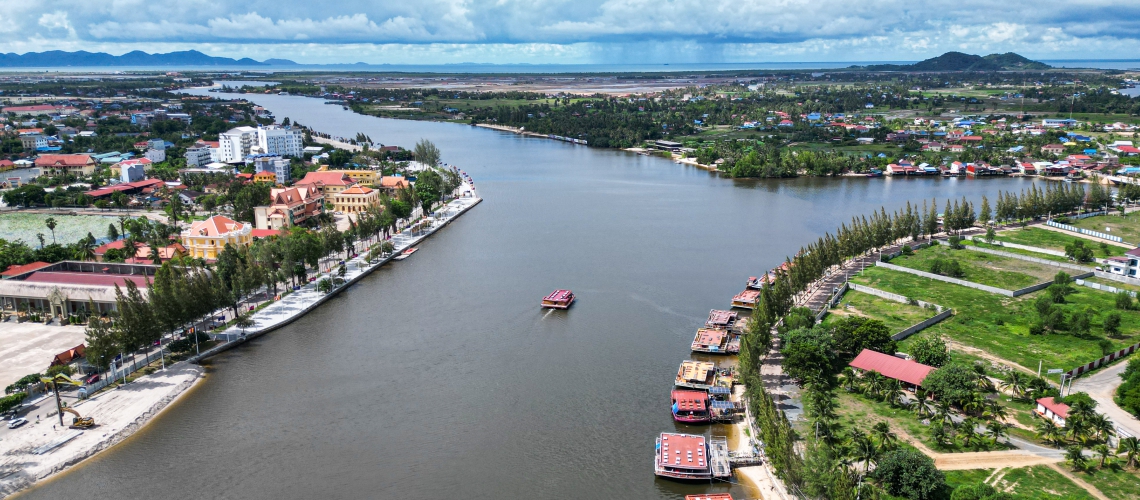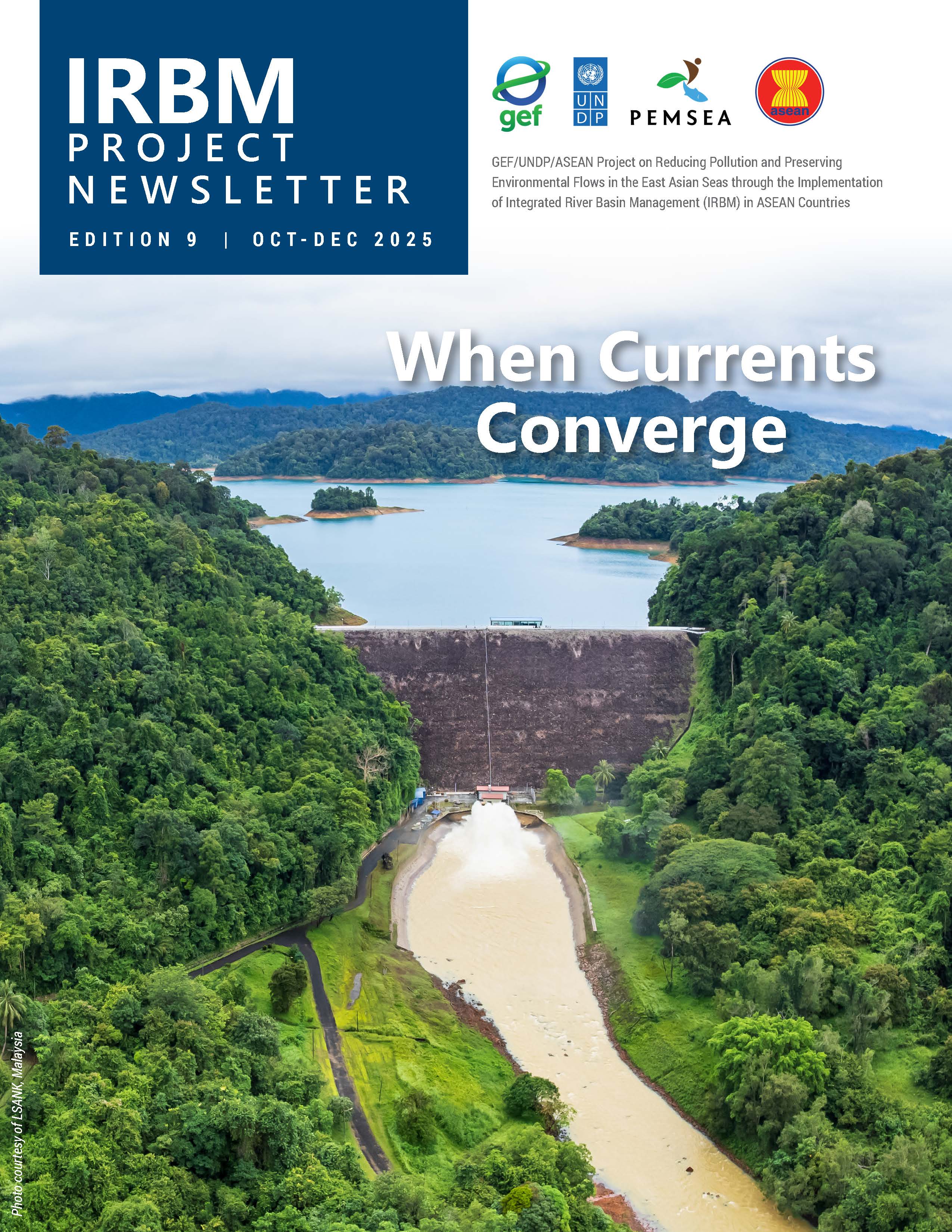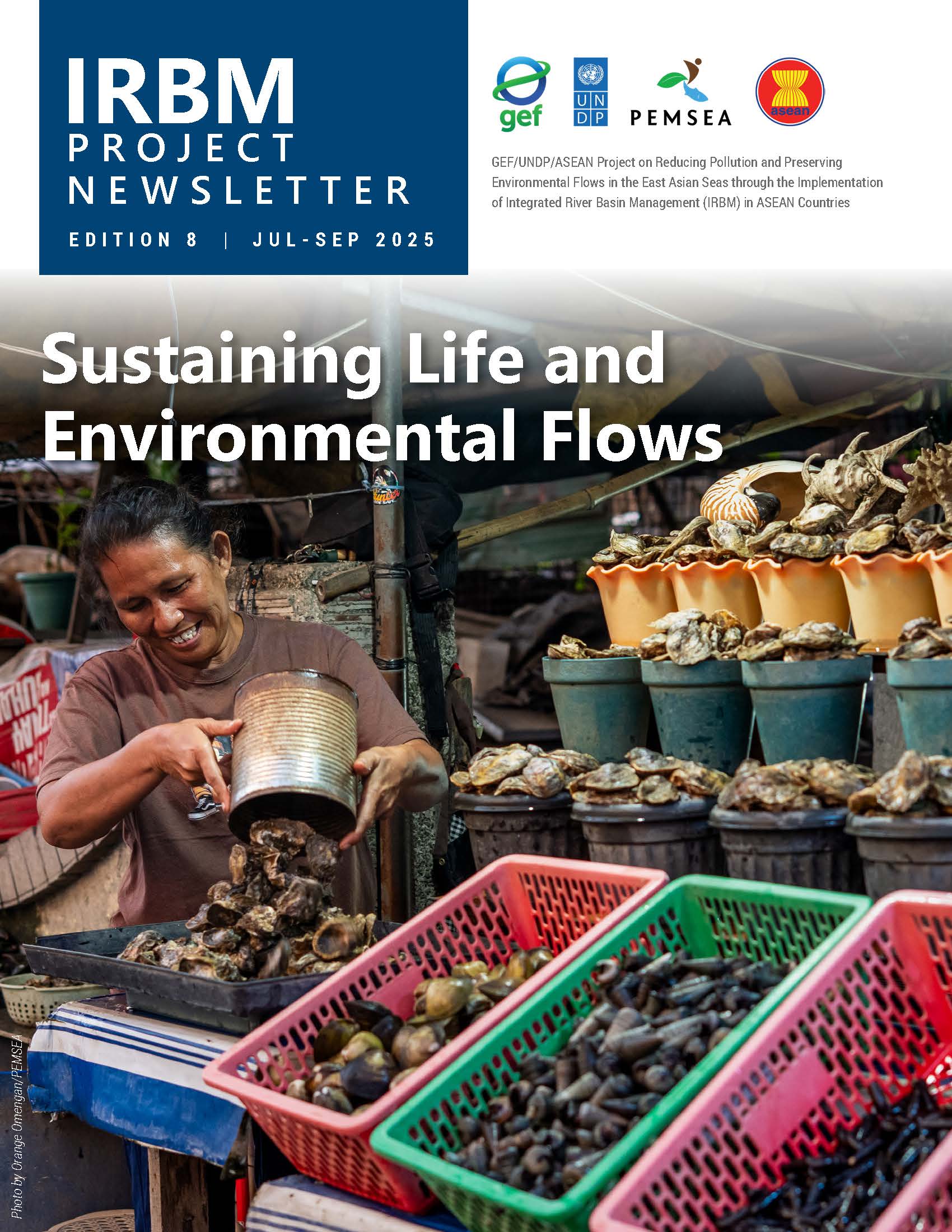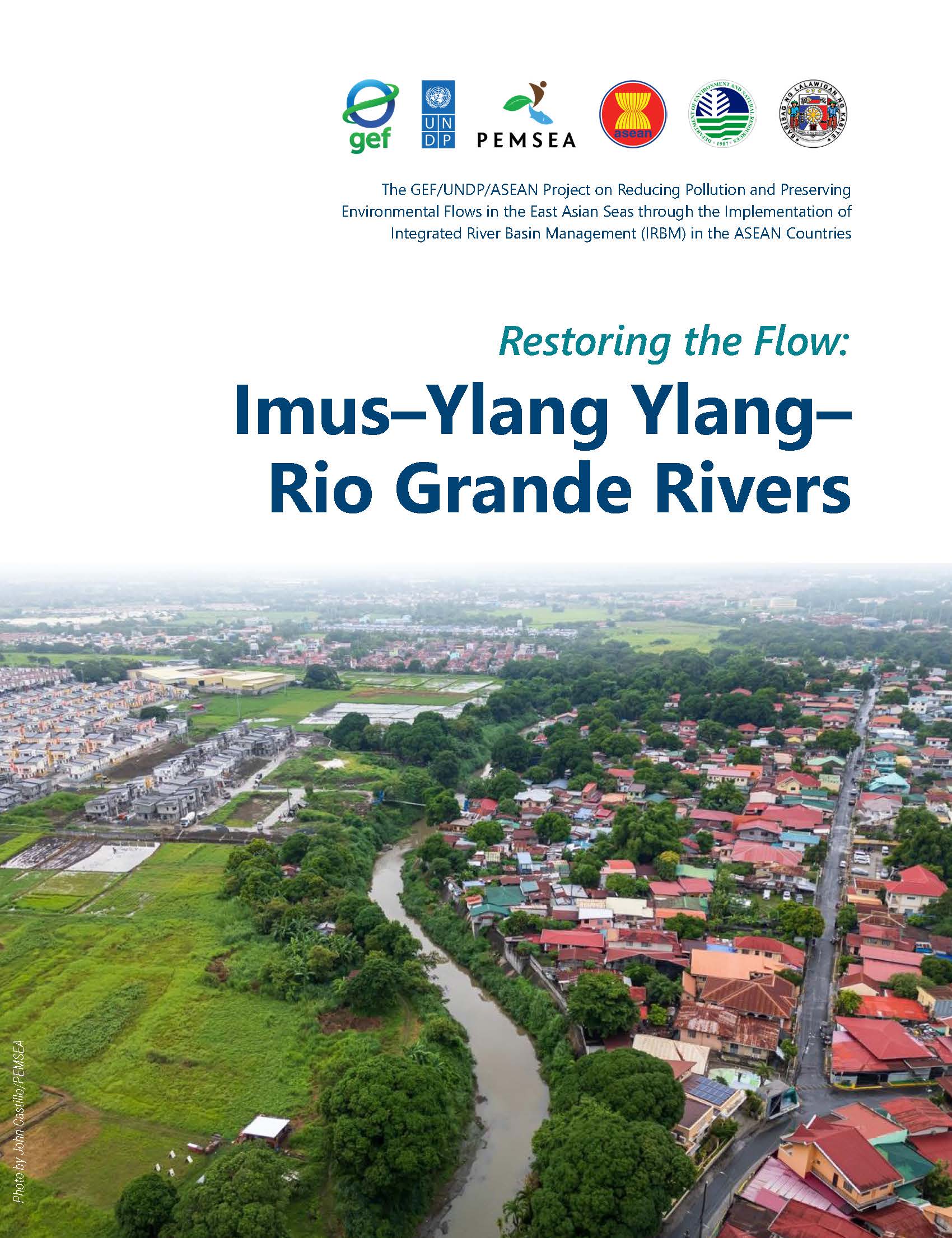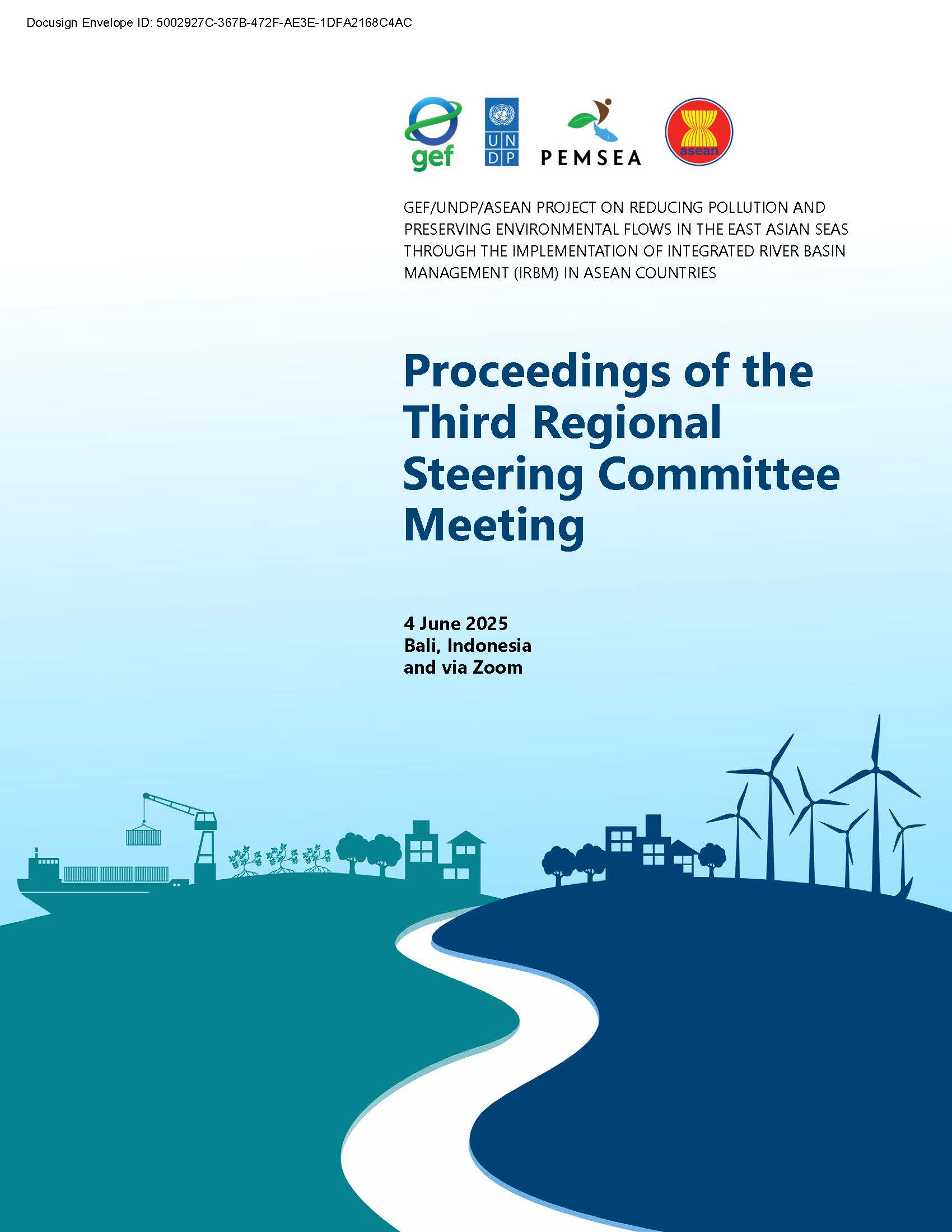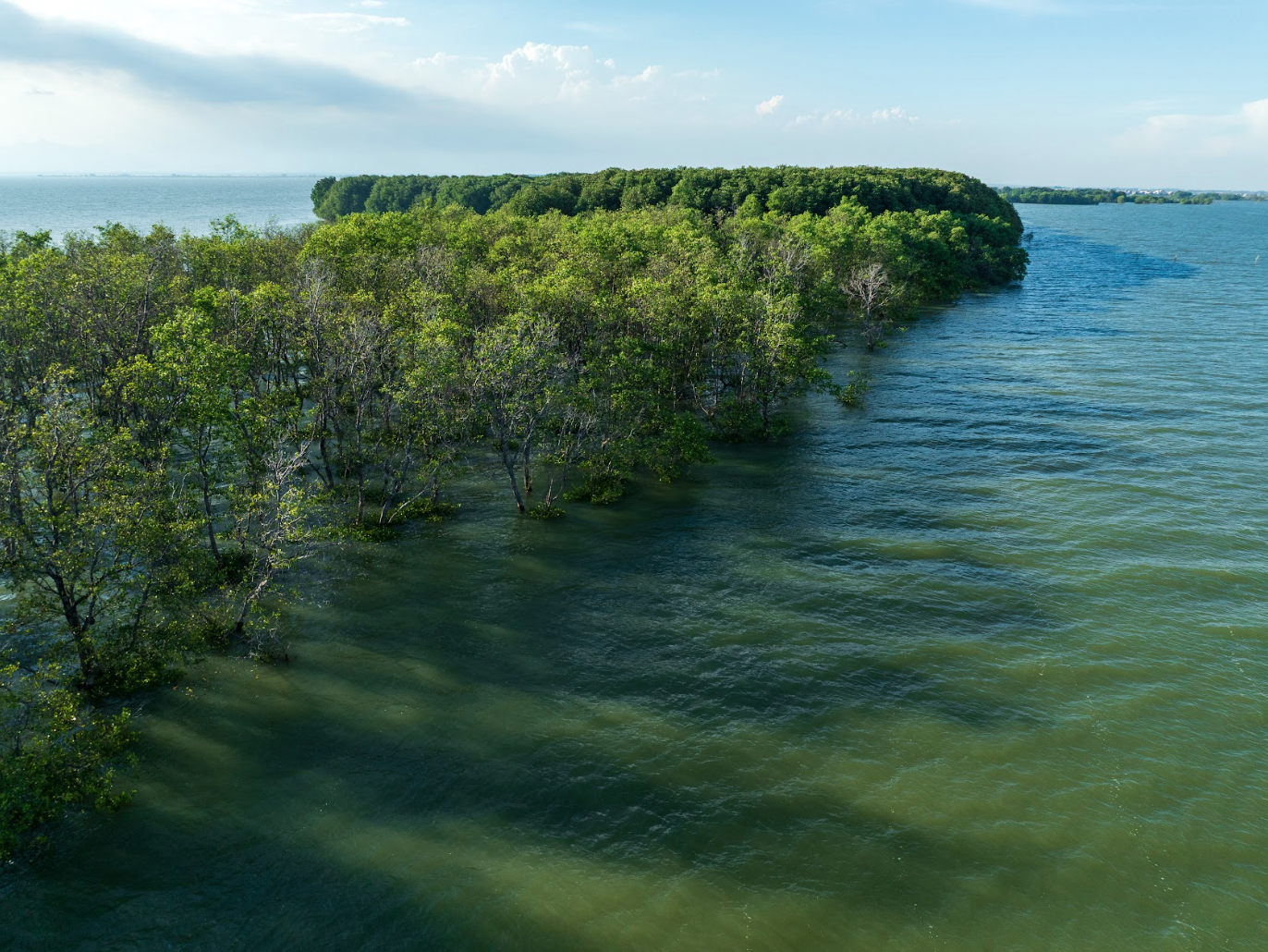
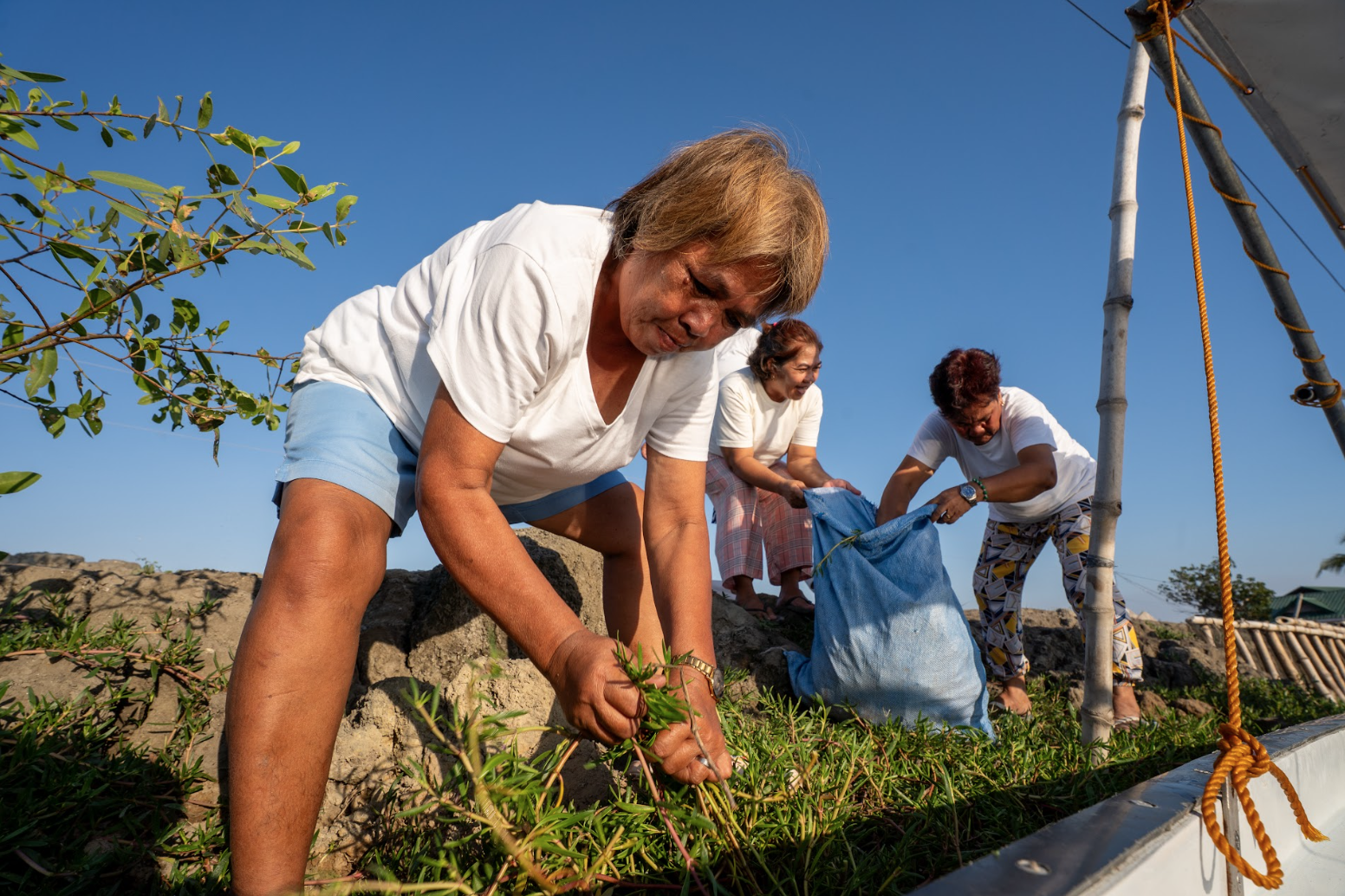
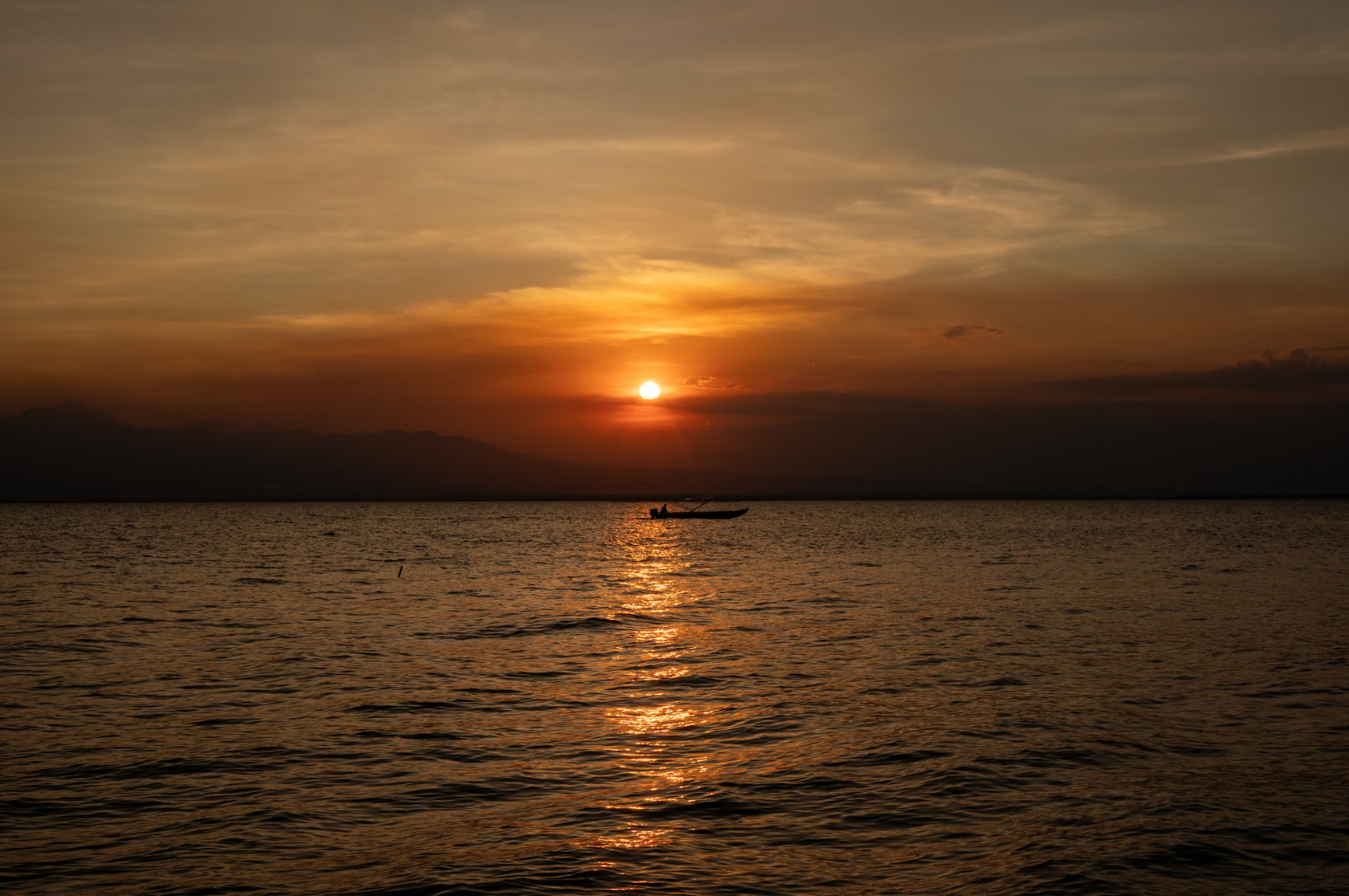
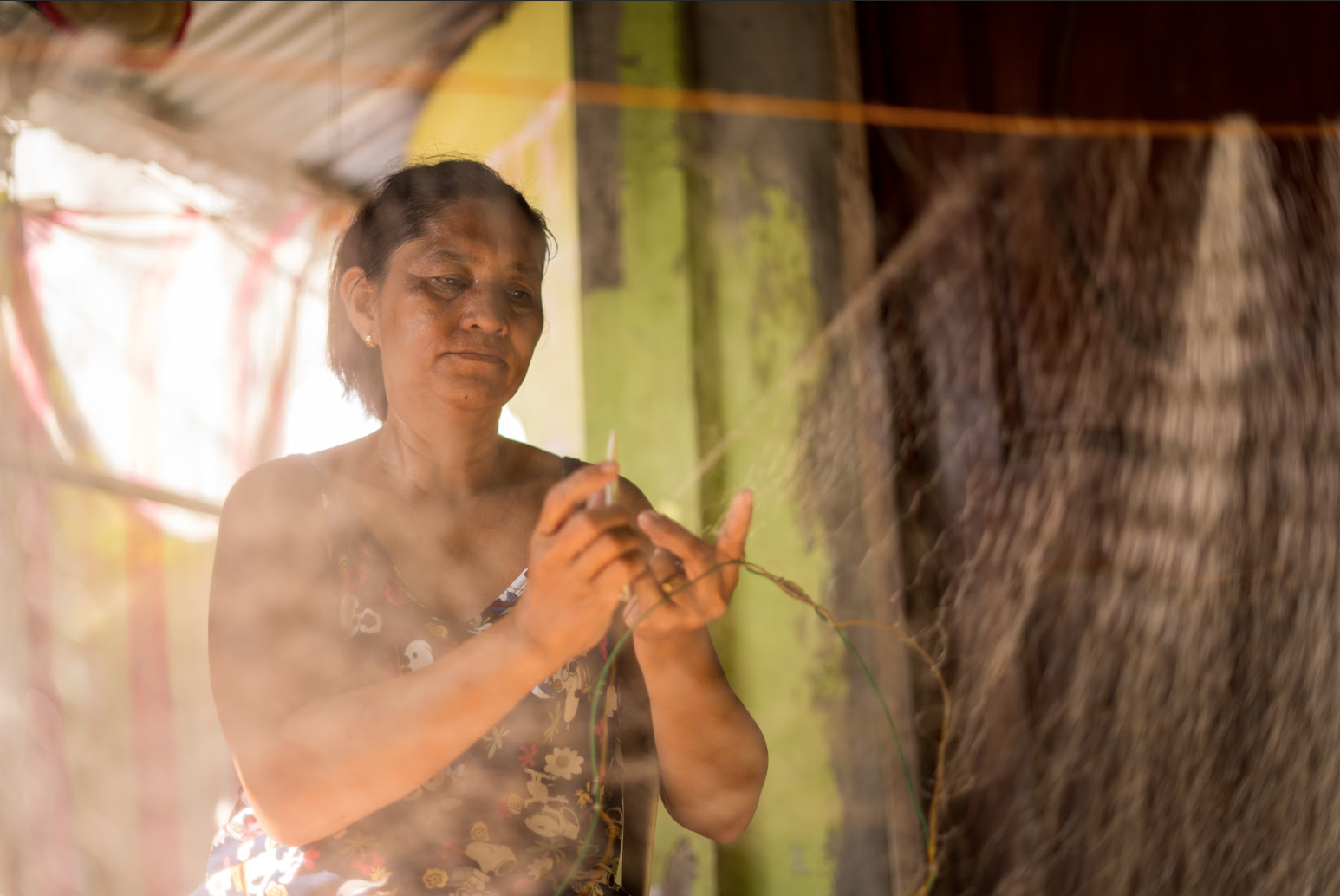
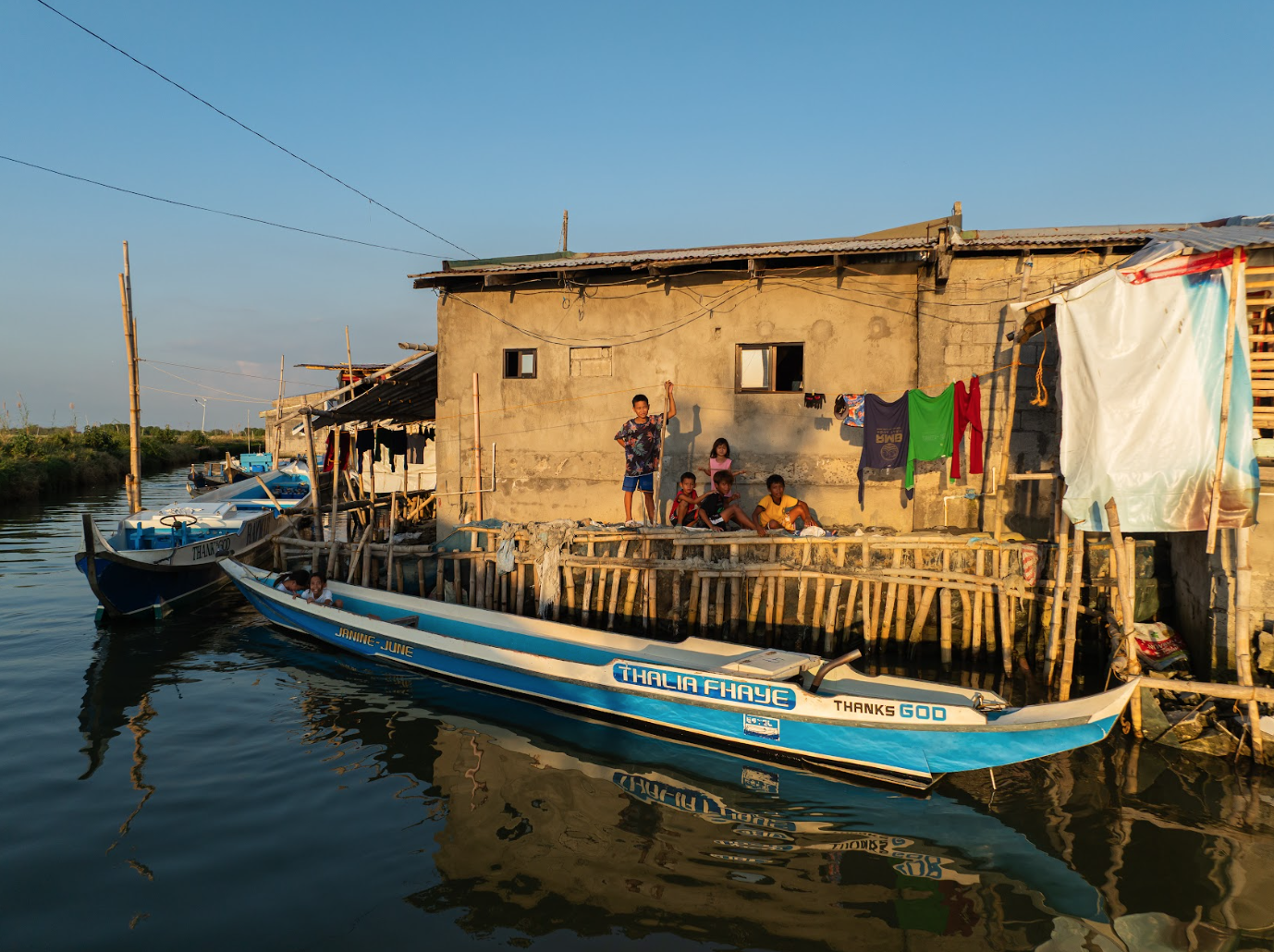
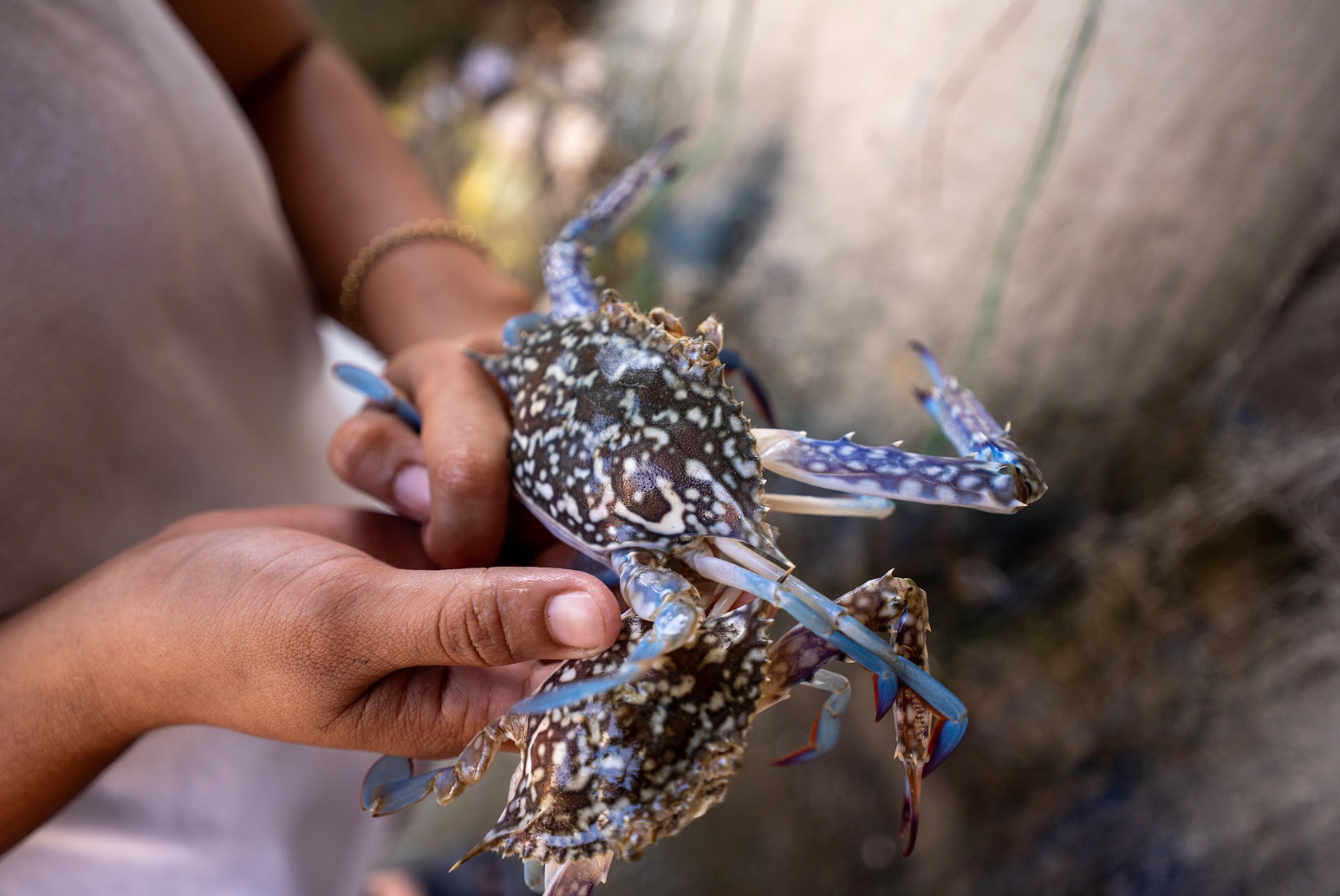
Breadcrumb
Integrated River Basin Management Project

Project Information
Implementing Agency: UNDP Bangkok Regional Hub
Executing Agency: PEMSEA Resource Facility
Funding Institution: Global Environment Facility
Participating ASEAN Member States: Cambodia, Indonesia, Lao PDR, Malaysia, Philippines and Vietnam
Project duration: 5 years (January 2023 to December 2027)
Project Grant: USD 8,479,123
Project Co-financing: USD 106,985,192
Spanning five years, the Integrated River Basin Management (IRBM) Project takes a comprehensive approach to protection and conservation, focusing on priority river basins in Cambodia, Indonesia, Lao PDR, Malaysia, the Philippines, and Vietnam. The project aims to reduce pollution, protect freshwater flows, and strengthen climate resilience.
This initiative influences four key large marine ecosystems—the Bay of Bengal, South China Sea, Gulf of Thailand, and Indonesian Sea—since the selected river basins in these countries drain into them. The project acknowledges the vital connection between river health, the well-being of marine environments, and the communities that rely on the resources that these critical bodies of water support.
The IRBM Project is supported by the Global Environment Facility (GEF), implemented by the United Nations Development Programme (UNDP) and executed by Partnerships in Environmental Management for the Seas of Asia (PEMSEA) Resource Facility, in collaboration with ASEAN.
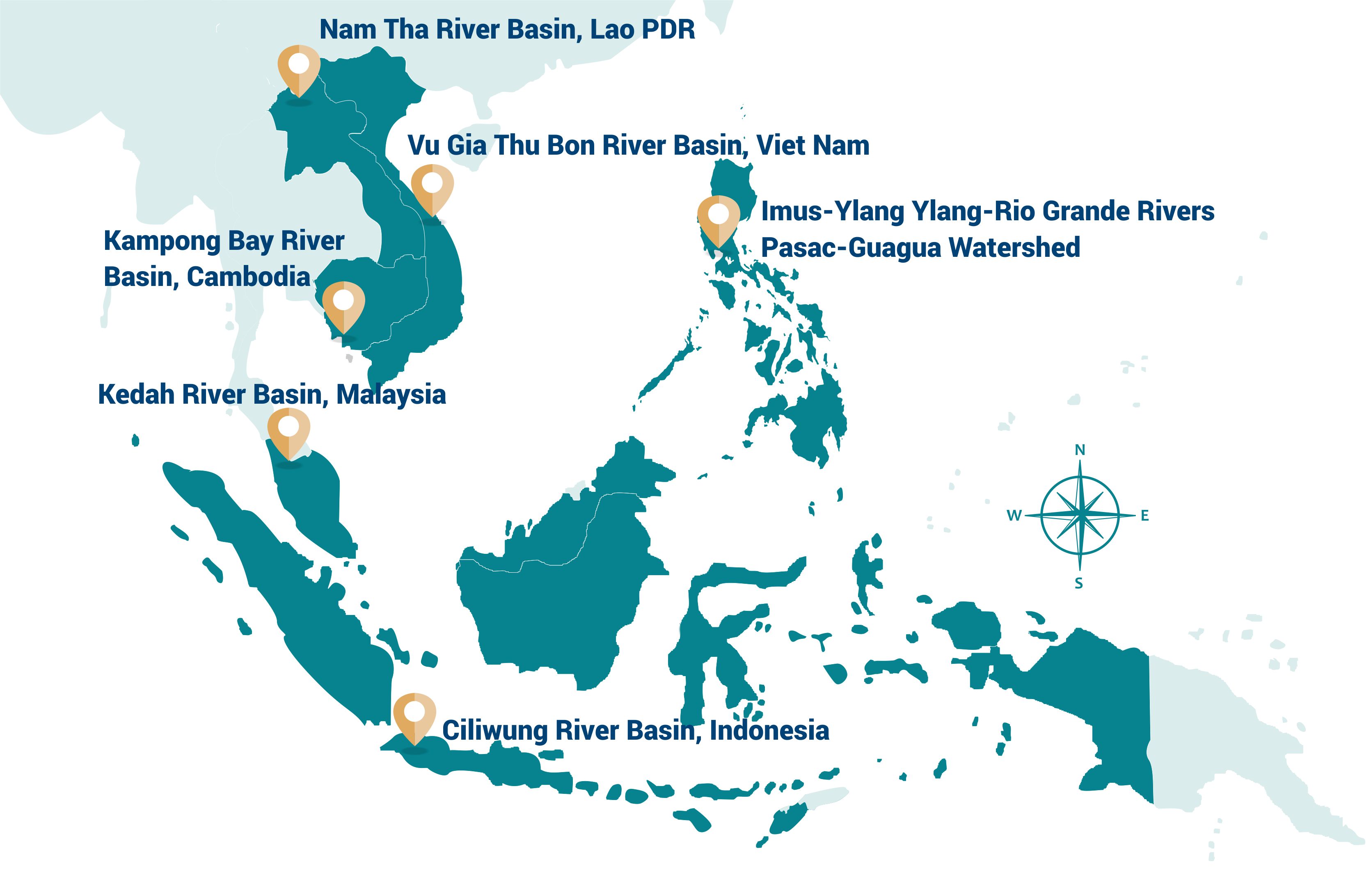
This graphic is not drawn to scale and is provided for illustration purposes only.
Project Goal
To establish functional IRBM mechanisms in the priority river basins of six ASEAN Member States to reduce pollution, sustain freshwater flows, and enhance resilience to climate change vulnerabilities
To achieve this goal, the project employs a solution-oriented approach that includes:
- Strengthening understanding of Source-to-Sea governance, socioeconomic and ecological conditions, while identifying gaps and needs in the seven priority river basins and their associated coastal areas
- Implementing pilot projects that deliver practical, on-the-ground solutions to address key issues, using tested models designed for replication and scaling up
- Facilitating hands-on training, capacity-building programs, and knowledge-sharing activities to support participatory planning and the development of effective IRBM governance and management practices across the six ASEAN countries.
Project Components
PROJECT OUTCOME 1:
Improved understanding of the situation and challenges in the river basins and surrounding areas:
- State of River Basin Reports
PROJECT OUTCOME 2:
Improved Source-to-Sea management demonstrated in the IRBM Pilot Projects:
- Feasibility studies, financial analyses, public consultations for preferred options for addressing IRBM challenges and formalizing the commitments to implement the pilot projects
IRBM governance mechanism and instruments refined:
- Good practices in IRBM governance and management
- Analysis of IRBM policies, strategies, laws, economic and financial instruments and partnership arrangements
- IRBM strategies and action plans
PROJECT OUTCOME 3:
Improved IRBM knowledge management and enabling capacities:
- Technical guide for a harmonized set of governance and management indicators
- Water quality monitoring and reporting
- Capacity building and skills on IRBM development and management
- Regional IRBM knowledge and communication management platform
- Regional and global forums, learning exchanges and networking
Project level monitoring and evaluation:
- Annual Project Implementation Review
- Independent mid-term and final evaluations
Project Publications
-
Integrated River Basin Management Project Newsletter - Edition 9
The final quarter of 2025 marked a period of steady progress for the GEF/UNDP/ASEAN Integrated River Basin Management (IRBM) Project, as participating countries continued moving from planning toward implementation. Across the region, this transition was shaped by strengthened governance arrangements, deeper stakeholder engagement, and sustained awareness-raising efforts that anchored the Project more firmly at national and local levels.
A key milestone in November was the official launch of the IRBM Project in Indonesia, alongside the signing of a Memorandum of Agreement between the PEMSEA Resource Facility and the Ministry of Environment. This agreement formalized the implementing arrangements and collaboration for project implementation in the Ciliwung River Basin in Indonesia.
Earlier in October, a series of consultations in Indonesia, Viet Nam, and Malaysia brought together representatives from national, state-level, and local government agencies to identify and confirm priority issues and pilot solutions for the Ciliwung, Vu Gia–Thu Bon, and Kedah river basins. While each basin reflected its own social and ecological context, the discussions revealed shared challenges—wastewater and solid waste management, flooding, sedimentation, competing water uses, and saltwater intrusion. These common concerns underscored the growing urgency of integrated governance and management approaches in the face of accelerating development and climate pressures.
In December, the Project extended its outreach in the Philippines through participation in the Cavite Coastal Summit and the Cavite Sustainable Development Strategy Workshop. These events provided opportunities to raise awareness on Integrated River Basin Management, share updates on Project implementation in Cavite Province, and introduce the Source-to-Sea approach to local government officials, academe, and stakeholders engaged in environmental planning and management.
During the same month, the Project also convened an online inception meeting to initiate the development of the IRBM Training Manual and Training-of-Trainers (ToT) Program. Representatives from the six participating ASEAN Member States discussed the approach, methodology, and timeline for developing the training manual and ToT program, which will incorporate global practices while being grounded in regional and local contexts and practical application.
Taken together, the activities of the past quarter reflect a year of converging efforts and collective momentum. This journey is captured in the 2025 photo gallery featured in this edition, offering a visual walkthrough of the engagements, partnerships, and milestones that have marked the Project’s steady progression throughout the year.
-
Integrated River Basin Management Project Newsletter - Edition 8
The GEF/UNDP/ASEAN Integrated River Basin Management (IRBM) Project continued to gain progress in the third quarter of 2025 with strengthened partnerships, wider knowledge sharing, and more active participation in amplifying best practices and local stories across the ASEAN region.
In the Philippines, national implementation advanced with the signing of a Memorandum of Agreement (MOA) between the Department of Environment and Natural Resources (DENR) and PEMSEA Resource Facility sustaining collaboration for project implementation in the Pasac–Guagua Watershed and Imus–Ylang Ylang–Rio Grande Rivers. Additionally, consultations in these two river basins helped identify priority issues for pilot project development and implementation, focusing on addressing water scarcity, improving wastewater management, and promoting nature-based solutions.
In Malaysia, coordination with government counterparts was carried out in preparation for the official launch and full-scale implementation of the Project along the Kedah River Basin. For each participating ASEAN Member State, multistakeholder workshops on Water-Energy-Food-Ecosystem (WEFE) Nexus were held to gather local perspectives and anecdotal information on changes and trends, including gender responsive approaches, relating to water, energy, food, ecosystem, and disaster risk reduction, and potential synergies and trade-offs across these sectors.
At the regional level, the Project expanded its knowledge and capacity building network through initiation of the establishment of IRBM Learning Centers for the Project and linked to the PEMSEA Network of Learning Centers (PNLC). The Project also participated in key international and regional platforms—from Korea’s 20th anniversary celebration of Total Pollutant Loading Management to the GEF Project Oversight Training in the East Asian Seas Region held in the Philippines —sharing lessons learned and best practices on project oversight and implementation.
The Project also highlighted the importance of visual storytelling through local narratives that can drive understanding and action during the GEF IW:LEARN webinar. The Project was also able to profile the Imus-Ylang Ylang-Rio Grande Rivers in the Philippines highlighting community realities and the steps the government has initiated in conserving this river basin.These collective efforts reflect a shared commitment to integrated and inclusive river basin management - one that bridges science, governance, and community voices to build a more resilient and sustainable future for ASEAN’s river basins and watersheds and associated coastal and marine areas.
-
IRBM Stories - Restoring the Flow: Imus-Ylang Ylang-Rio Grande Rivers
In Cavite, Philippines, river rangers, mangrove stewards, fishers, artists, and local government partners are working together to restore the Imus–Ylang Ylang–Rio Grande Rivers and their nearby waterways—removing debris, caring for mangroves, and promoting cleaner, more sustainable livelihoods. With continued partnerships, coordinated planning, and stronger local and national governance, these rivers can once again support farms, fisheries, and local livelihoods. As the province of Cavite continues to grow, the restoration efforts demonstrate how progress and conservation can advance together, helping keep these waterways vital for communities.
Read more about the Imus–Ylang Ylang–Rio Grande River profile, which highlights community realities and the measures the government has initiated to protect and conserve this river basin.
-
IRBM: Proceedings of the Third Regional Steering Committee Meeting
Held back-to-back with the 25th Meeting of the ASEAN Working Group on Water Resources Management (AWGWRM), the Third Regional Steering Committee (RSC) Meeting of the GEF/UNDP/ASEAN Project on Reducing Pollution and Preserving Environmental Flows in the East Asian Seas through the Implementation of Integrated River Basin Management (IRBM) in ASEAN Countries was held on 4 June 2025 through a hybrid format,. i.e., in-person at Haliday Inn Resort Baruna in Bali, Indonesia and online via Zoom.
Hosted by the Government of Indonesia through the Ministry of Environment (MOE), the meeting was co-chaired by Mr. Oudomsack Philavong, AWGWRM Chairperson and Mr. Gerd Trogemann, Manager of United Nations Development Programme-Bangkok Regional Hub of Asia and the Pacific (UNDP-BRH). The meeting was attended by the National Focal Points (NFPs) of the AWGWRM from nine (9) ASEAN Member States (Cambodia, Indonesia, Lao PDR, Malaysia, Myanmar, Philippines, Singapore, Thailand, and Vietnam), the East Asian Seas Executive Committee, the ASEAN Secretariat, and UNDP-BRH.
The Regional Project Management Unit (RPMU), hosted by PEMSEA Resource Facility and MOE Indonesia served as Secretariat to the RSC meeting.
-
Integrated River Basin Management Project Newsletter - Edition 7
Now in its third year, the IRBM Project enters a pivotal phase in advancing integrated river basin management across Southeast Asia. “Midpoint Momentum”, the seventh edition of the project’s newsletter, highlights key developments – notably the review of the implementation progress at the Third Regional Steering Committee Meeting, including the completion of the Mid-term Review, the conduct of the orientation workshop on the REWEFe Toolkit for the ASEAN Member States, the official project launch in Viet Nam and the development of solutions templates to support IRBM pilot project planning and implementation.
This issue also features field stories, such as the Women of the Wetlands in the Pasac-Guagua Watershed, and announces the launch of the IRBM e-Portal on PEMSEA’s Seaknowledge Bank.
From establishing coordination mechanisms at the local, national, and regional levels to designing scalable solutions template for river basin-level implementation, the IRBM Project continues to accelerate momentum – strengthening regional collaboration, deepening stakeholder engagement, and enhancing capacity and knowledge sharing across the ten ASEAN Member States.
Pagination
Do you want to learn more about the IRBM Project?
